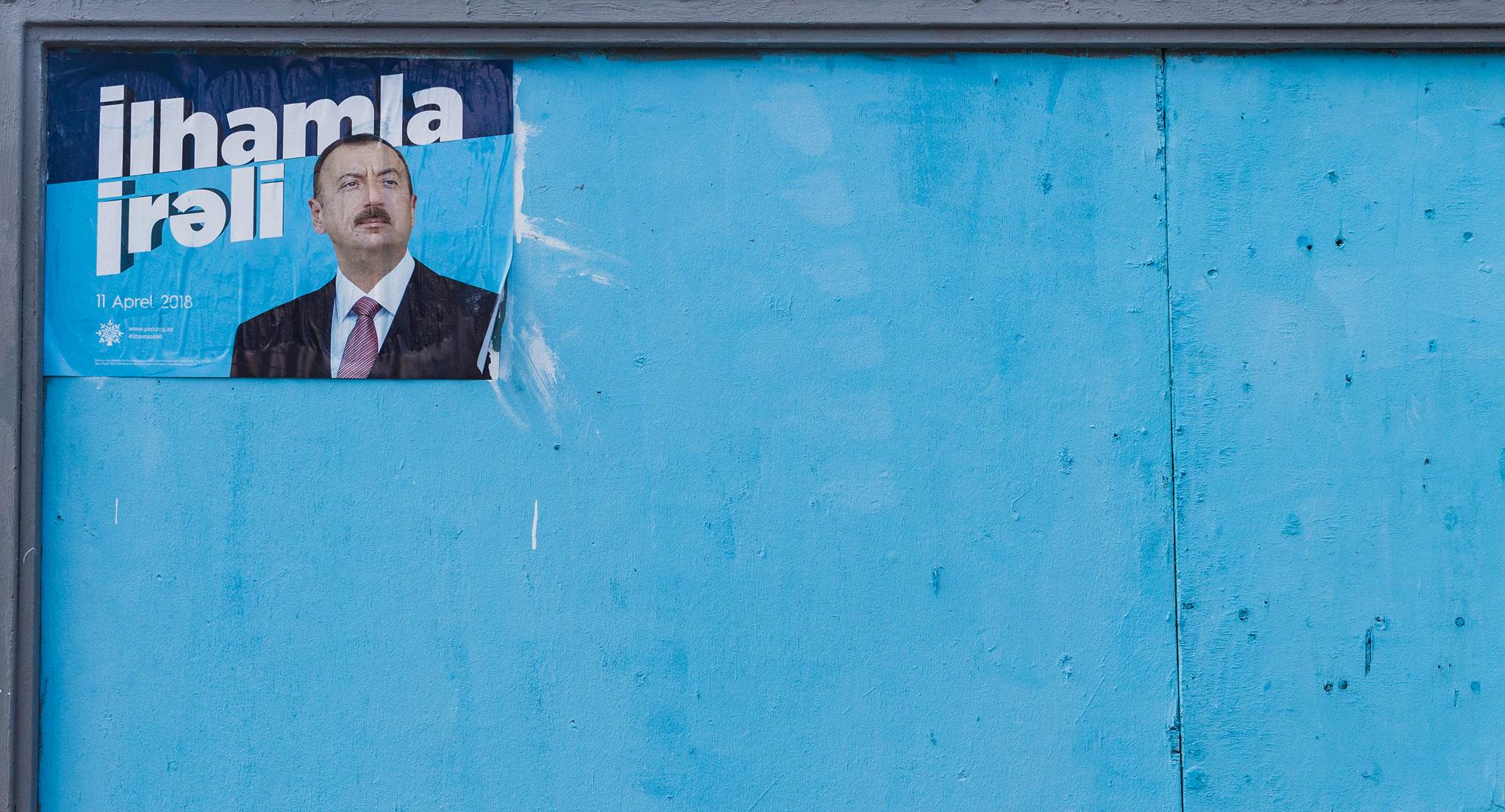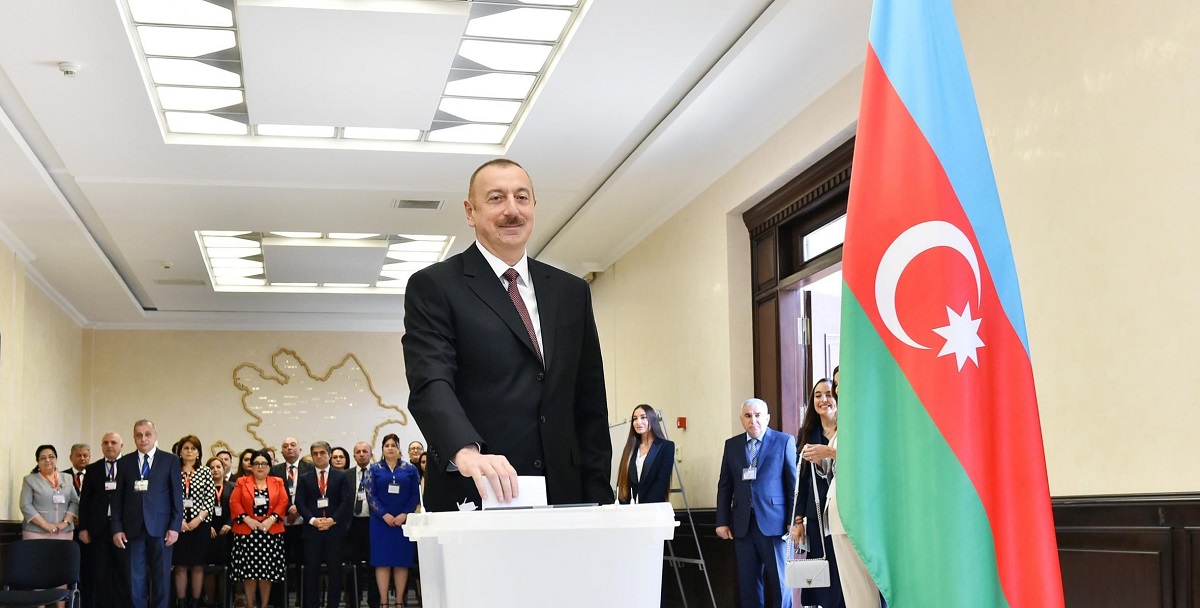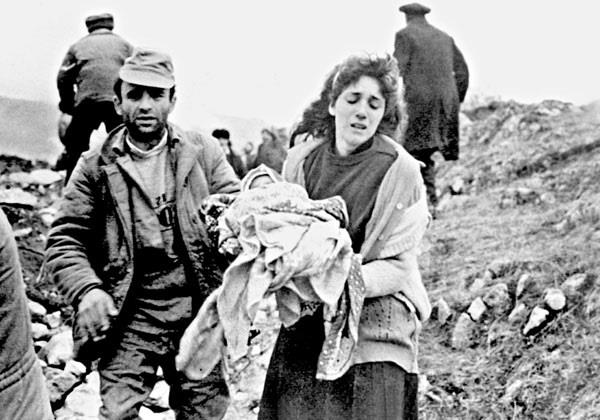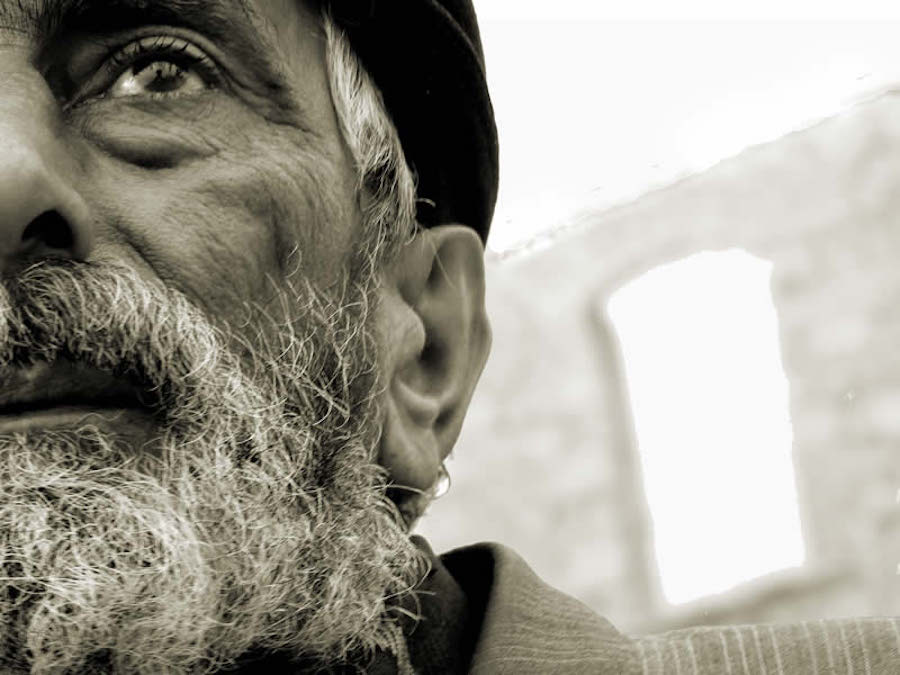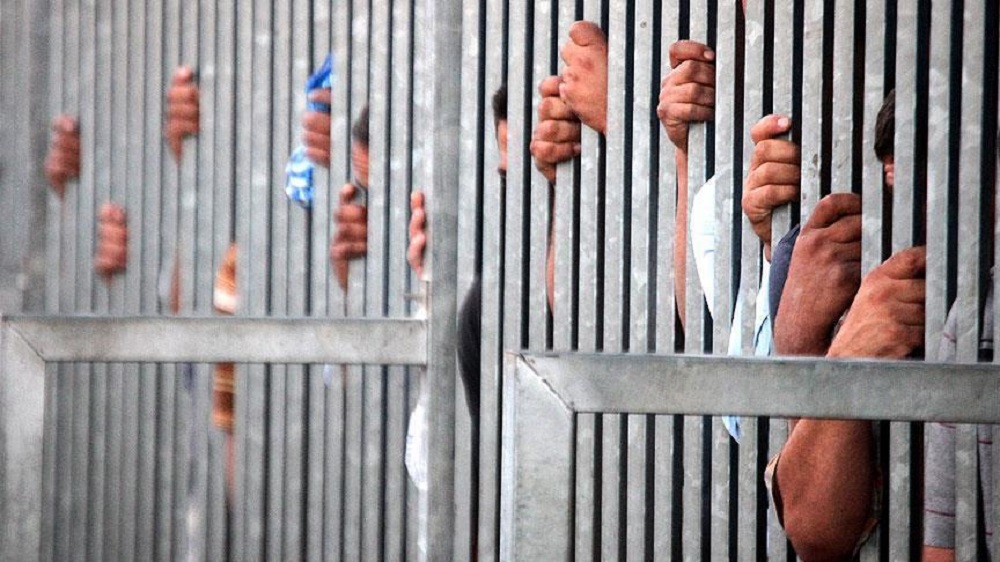Ilham Aliyev’s victory formula: fragmented opposition, destroyed media, grateful people
How Ilham Aliyev wins the presidential election. Analysis prepared by Meydan TV
The initial exit polls following the closure of polling stations on February 7 in Azerbaijan’s early presidential elections show a landslide victory for the current President Ilham Aliyev, with 93.9% of the vote. Aliyev has already received congratulations from the presidents of Belarus, Uzbekistan, and Turkey.
The OSCE Office for Democratic Institutions and Human Rights described the situation in Azerbaijan during the preparation for the early presidential elections, scheduled for February 7, as marked by a lack of real competition, pressure from authorities on the media, and obstacles to monitoring by public organizations, according to its interim report dated January 31, 2024.
These presidential elections are being held in Azerbaijan on an extraordinary basis for the second time.
The first instance occurred in 2018 when elections originally scheduled for October were held in April.
Now, the elections, initially slated for 2025, are taking place almost a year and a half earlier, on February 7, 2024.
In 2008, Ilham Aliyev ran for president for the second time, knowing it would be his final opportunity. At that time, the Constitution prohibited individuals from being elected president more than twice. However, a year later, a referendum was conducted, abolishing this restriction.
Since 2016, the president has had the authority to unilaterally decide on early elections and to dissolve parliament.
This expanded presidential power was granted through a constitutional referendum held in 2016, which also conferred upon the president the right to dissolve parliament.
The revised constitution failed to outline the specific circumstances warranting the dissolution of parliament and the holding of early elections. Moreover, the procedures for conducting early elections remained undefined.
Another outcome of the same referendum was the extension of the presidential term from 5 to 7 years.
Additionally, the referendum established the positions of first vice president and vice president. In the event of the president’s early resignation, the first vice president assumes the presidential responsibilities until the election of a new head of state.
Since 2017, this role has been occupied by the country’s first lady, Mehriban Aliyeva.
Political reasons for early elections
This time, Ilham Aliyev justified the decision for early elections with several political considerations.
- Following the events of September 2023, when a local military operation occurred in Karabakh on September 19, a new era commenced. These elections are anticipated to conclude the previous period and mark the inception of a fresh one.
- Aliyev asserts that “since presidential elections hold paramount significance, they should be the first elections conducted nationwide.”
- Furthermore, he noted that October 2023 signifies the 20th anniversary of his presidency.
However, the opposition finds Aliyev’s reasons unconvincing.
? Chairman of the National Council, Professor Jamil Hasanli, expressed:
“What defines this purported new era that Ilham Aliyev has mentioned? Have there been alterations to the Constitution or the political structure of the country? Has citizen participation in governance experienced enhancement?
Quite the opposite, the welfare of the populace has further declined, and instances of corruption in infrastructure projects in the liberated territories have been exposed. In just 2023 alone, the tally of political detainees more than doubled.”
Karabakh has been a decisive factor in all presidential elections
The Karabakh conflict, which originated in 1988 with Armenian territorial claims, has served as the primary catalyst for political shifts in Azerbaijan over the past 33 years.
● Ayaz Mutalibov, who assumed power in 1990, lost his position two years later. The Supreme Council cited the Khojaly tragedy as the rationale for Mutalibov’s resignation from the presidency.
● In 1992, Abulfaz Elchibey took leadership of the country. In April 1993, Armenian forces occupied Kelbajar. Subsequently, a military mutiny in Ganja in June of the same year compelled Elchibey to step down from the presidency.
● During the initial months of Heydar Aliyev’s presidency, which began in 1993, six regions were seized. However, unlike his predecessors, he chose not to prolong the conflict and consented to a ceasefire. Throughout his decade-long tenure, there were no further military engagements.
The military defeat of the 1990s, the discredit of leaders from the national liberation movement, whom the populace had placed trust in, and the challenging socio-economic circumstances significantly impacted Azerbaijani society.
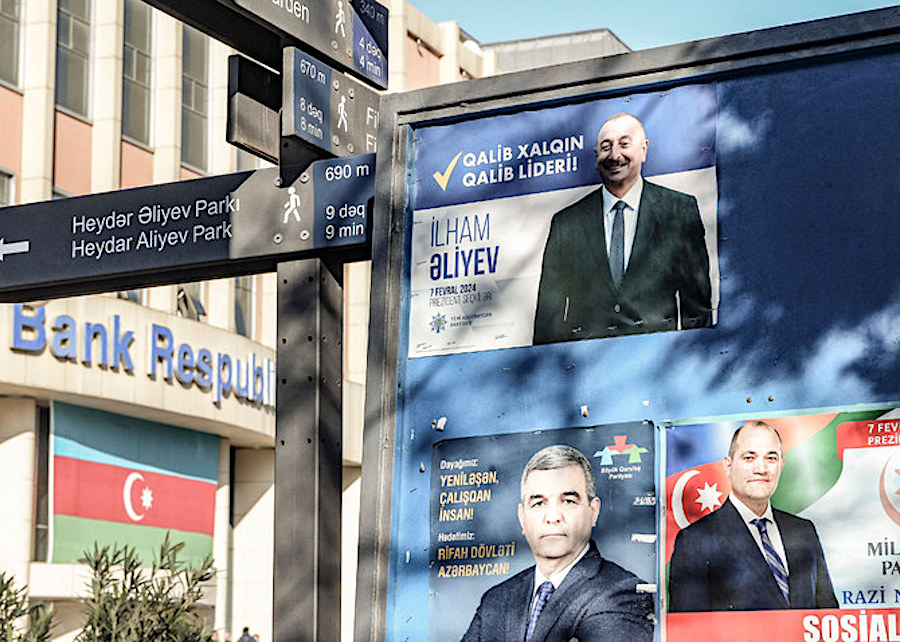
Victory in the second Karabakh war significantly strengthened Aliyev’s position
In the 17th year of Aliyev’s son’s tenure, on September 27, 2020, a 44-day war commenced. Over the subsequent three years, Karabakh was entirely liberated from the separatists.
On the day of Shushi’s liberation, even Ali Karimli and Isa Gambar, who were staunchly opposed to him, congratulated Ilham Aliyev.
? His rival in the 2003 elections, Lala Shovkat Hajiyeva, remarked, “Azerbaijan could not thrive fully without Karabakh and Shushi, and Ilham Aliyev resolved this incredibly challenging issue by rallying the nation.”
Therefore, prominent figures within the opposition and the primary adversaries of Ilham Aliyev essentially conceded that they do not perceive an alternative to him.
Former prime minister of Armenia, Nikol Pashinyan, president of the Russian Federation, Vladimir Putin, and several Western leaders affirmed their recognition of Karabakh as an integral part of Azerbaijan.
Undoubtedly, these developments significantly influenced public sentiment towards Ilham Aliyev.
● Composer Javanshir Guliyev, who had previously gone into exile to protest against Aliyev’s regime, announced his intention to vote for him in the presidential elections on February 7, 2024.
● Singer Akif Islamzade, a former member of the opposition party Popular Front of Azerbaijan until the mid-2000s, advocated for the cancellation of elections altogether and proposed making Aliyev the perpetual president.
● Rais Rasulzade, the grandson of the founder of the 1918 Azerbaijan Democratic Republic, Mohammed Amin Rasulzade, stated that if his grandfather were alive, he would vote for Ilham Aliyev.
● Throughout the current election campaign, all presidential candidates expressed gratitude to Aliyev for the victory in Karabakh.
Given this backdrop, it is reasonable to assume that calling the elections at a time when Ilham Aliyev’s approval ratings are at an all-time high was a deliberate decision.
Therefore, as he heads into the elections, Aliyev has:
- The populace expresses gratitude towards him,
- A fragmented, weakened opposition persistently under pressure,
- Media and civil society decimated.
- “I collected cosmetics, grooming products.” Elnara Gasimova, the story of an arrest
- Abzas Media will continue its operations with a new team from abroad
- Azerbaijani delegation departs from PACE: Commentary from Baku
Now let’s take a closer look.
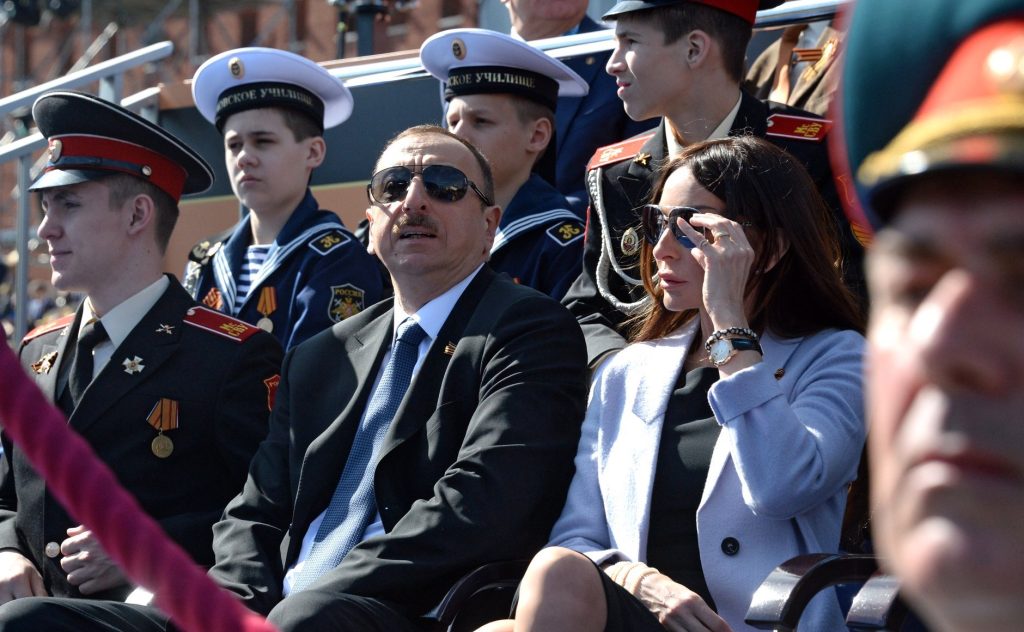
“Pre-election” laws regarding media and political parties
The present pre-election political landscape in Azerbaijan is painted with a different hue compared to previous elections.
Over the past 30 years, the politically engaged segment of society and independent opposition media typically encountered pressure AFTER the elections; however, this time, the sequence was reversed.
Of utmost significance is the adoption of new laws pertaining to media and political parties during 2022-2023.
Media Law
All independent journalists opposed the new media law adopted on December 30, 2021, stating that it would significantly curtail media activities. Mehman Aliyev, director of the Turan news agency, remarked that the law’s purpose is to enhance state control over the media.
The Venice Commission of the Council of Europe categorically rejected the “On Media” law in its conclusion and underscored that such legislation should not be applied in a member state of the Council of Europe.
The 2023 report from the international organization “Reporters Without Borders” highlighted the dismal state of press freedom in Azerbaijan.
In the media freedom index compiled by the organization, Azerbaijan ranked 151st among 180 countries worldwide.
? “From now on, not all journalists will be able to cover elections. And this, in itself, is a restriction of the right to access information, further limiting the openness and transparency of the elections,” remarked Anar Mammadli, Chairman of the Center for Election Monitoring and Democracy Education.
Law “On Political Parties”
This law was signed by Ilham Aliyev on January 11, 2023, and it also garnered criticism both domestically and internationally.
- Protest against the law “On political parties” held in Baku; dozens arrested
- Europe calls on Azerbaijani authorities to change law “On political parties”
The Venice Commission and the OSCE Office for Democratic Institutions and Human Rights jointly stated that “the new law introduced several problematic provisions that could potentially stifle pluralism in the country.
Excessive state control over the internal functioning of political parties, including the mandate to furnish the state with lists of their members, is deemed excessive. The suspension and dissolution of political parties should only be invoked in cases of the gravest violations of regulations and under extreme circumstances.”
The enactment of the “On Media” and “On Political Parties” laws failed to uphold the commitments on political freedoms that the Azerbaijani authorities pledged to the Council of Europe.
Despite proposals from the Venice Commission and the OSCE Office to rectify the shortcomings in the law, these suggestions were disregarded by the Azerbaijani authorities.
Pre-election arrests
● In December 2022, prominent civil activist Bakhtiyar Gadzhiev was arrested. Initially, he faced charges of hooliganism and contempt of court.
However, by June 2023, Gadzhiev was confronted with additional charges including “illegal entrepreneurship,” “money laundering,” “smuggling,” and “use of false documents.” Subsequently, in November, he was further accused of tax evasion.
● In July 2023, Gubad Ibadoglu, the chairman of the Democracy and Welfare Party and a renowned economist, was arrested on charges of counterfeiting. Ibadoglu attributes his arrest to his political activities and research on construction projects in the liberated territories.
● On November 20, arrests commenced for the management and employees of the online publication AbzasMedia, known for its high-profile investigative journalism.
Director Ulvi Hasanli, deputy director Muhammed Kekalov, chief editor Sevinj Vagifgyzy, reporter Nargiz Absalamova, investigative journalist Hafiz Babala, and reporter Elnara Gasimova were implicated under Article 206.3.2 for smuggling committed by a group of individuals through prior conspiracy.
Additionally, the pension and salary accounts of Sevinj Vagifgyzy’s mother, Ulvi Hasanli’s mother and sister, and economist Togrul Veliyev, who was accused of collaborating with the site, were frozen.
● On November 27, Aziz Orujov, the head of the Internet channel “Kanal-13,” was arrested. Initially, he faced charges of “violation of the right of ownership, use, or lease of a land plot.” However, on December 19, he was recharged, this time with smuggling.
● On December 6, civil activist Ilhamiz Guliyev was arrested under Article 234.4.3 for the “production, acquisition, storage, transportation, or sale of narcotic drugs on a mass scale.” Subsequently, journalists Teymur Kerimov and Shamo Eminov were also arrested.
● On December 14, Tofig Yagublu, a member of the National Council and the Musavat Party, was arrested. He faced charges under articles 178.3.2 of the Criminal Code for “fraud causing major damage” and 320 for the “production or use of a forged document.”
● The computer and personal belongings of Araz Aliyev, a founding member of the political platform “Third Republic” and a teacher at Baku State University, who was detained on December 23 and sentenced to 25 days of administrative arrest for “hooliganism,” have yet to be returned.
● At the end of January 2024, Arzu Sayadoglu, the head and presenter of his own Youtube channel, who frequently criticized the political situation in the country and bureaucratic arbitrariness, was detained. He was held in custody for four months.
The recommendations from the OSCE to review the composition of election commissions have not been implemented
Following the early presidential elections in 2018, the OSCE recommended that the Azerbaijani authorities review the composition of election commissions to enhance their impartiality and bolster public confidence in their operations.
Among the prioritized recommendations was the decriminalization of defamation, including in online content.
However, none of these recommendations have been implemented to date.
Civil society at an impasse
Independent civil society was only represented in monitoring the early elections on February 7 by the Alliance of Election Observers.
The Center for Election Monitoring and Democracy Training was unable to engage with the Central Election Commission due to lack of registration – a status revoked back in 2008. Despite the European Court of Human Rights (ECHR) ruling in 2021 to reinstate registration, the Azerbaijani Supreme Court has yet to address this matter.
The current situation can be viewed as the culmination of sustained government pressure on civil society approximately 10-12 years ago. Stringent amendments to legislation in 2013-2014 effectively rendered this sector inactive.
? Lawyer Khalid Agayev highlighted the stark contrast in NGO registration and activity between Azerbaijan and other countries.
He noted, “With a population of more than 10 million, about 4 thousand non-governmental organizations are registered in Azerbaijan. In Georgia, where about 4 million people live, more than 20 thousand NGOs operate. And in Estonia, where the population is less than 1.5 million, there are more than 34 thousand NGOs.“
In 2013 and 2014, approximately 40 restrictive amendments were enacted to regulate the activities of NGOs.
Although registration of commercial entities typically takes a maximum of three business days, the registration process for NGOs extends to 40 days, with an additional 30 days if further examination is deemed necessary.
However, the practical reality is even more dire.
Under the amendments, if an NGO receives more than two written warnings or orders to rectify violations within a year, the organization can face liquidation by a court decision upon application from the ministry of justice.
Additionally, a substantial fine exceeding 25 thousand manats (approximately $15 thousand) may be imposed.
? “Access of NGOs to grants became nearly impossible after the cabinet of ministers approved the ‘procedure for registering grant agreements’ in June 2015, followed by the government establishing ‘the procedure for foreign donors to obtain the right to provide grants on the territory of Azerbaijan,” states Khalid Agayev.
In May 2014, the prosecutor general’s office dissolved the primary NGOs, initiating criminal cases against them based on data from the ministry of justice.
? “The bank accounts of major NGOs were frozen, their leaders and employees were barred from leaving the country, and they were subjected to investigations. Tax audits were initiated, resulting in significant fines,” states Khalid Agayev.
These tax audits targeted organizations such as the Resource Center for Democracy and Human Rights, the Azerbaijan Lawyers Association, the Institute of Media Law, the Institute of Peace and Democracy, the Center for Monitoring Elections and Democracy Education, the Human Rights Club, the Society for Legal Education, the Center for Democratic Journalism, the Institute for Freedom and Safety of Reporters, the Center for National and International Studies, the Public Association for International Cooperation of Volunteers, and others.
The total fines levied on local NGOs exceeded 1 million manats (approximately $600 thousand).
Foreign organizations also faced inspections and investigations.
These included Oxfam, IREX, Chamonix International, the National Institute for Democracy, World Vision, ABA CEELI, OSIAF, the Friedrich Ebert Foundation, and the Friedrich Naumann Foundation.
The total amount of tax fines imposed on foreign NGOs surpassed 3 million manats (about $1 million 800 thousand), leading many of them to depart the country.
Who else was running alongside Ilham Aliyev?
Six individuals entered the election race alongside Ilham Aliyev, who had led the country for 20 years:
- Deputies Fazil Mustafa, Zahid Oruj, Gudrat Hasanguliyev, and Razi Nurullayev
- Chairman of the Great Azerbaijan Party, Elshad Musayev
- Chairman of the Independent Trade Union, Fuad Aliyev
Gudrat Hasanguliyev has participated in all presidential elections over the past 20 years, garnering approximately 7.79% of the total votes during this time.
Zahid Oruj made his first appearance in presidential elections in 2013 and 2018, accumulating a total vote share of 4.57% across the two elections.
The remaining two candidates, Fazil Mustafa and Razi Nurullayev, are contesting the presidential election for the second time. Mustafa secured 2.47% of the votes in the 2008 elections, while Nurullayev participated in the same elections, receiving 0.74% of the votes.
Fuad Aliyev is also running for president for the second time. He made his initial attempt in 2008 while serving as chairman of the Liberal Democratic Party but received only 0.78% of the vote.
Elshad Musaev is participating in presidential elections for the first time. However, he claims to have previously submitted his candidacy in 2003, although it was not registered by the Central Election Commission at that time.
Thus, the candidates participating in the early presidential elections on February 7 received a total of 16.35% of the votes in previous elections. This is six times less than what Ilham Aliyev scored in 2003 alone (76.84%).
The opposition opted to boycott the elections
The main opposition parties decided to boycott the elections.
PFPA Chairman Ali Karimli stated:
“It is impossible to hold elections in the current conditions. In just a few months, the number of political prisoners has doubled, in the last five years there has been no freedom of assembly, the last remnants of the media are being destroyed, the opposition is treated almost as enemies, torture has become commonplace in prisons, election commissions are under the control of the authorities, and votes are not counted as normal.
On February 7, there will be not elections, but a performance on the theme of elections. The Popular Front is boycotting this performance and hopes that the people will not act in it either.“
The Musavat Party stated that they called on the government before the elections to create a democratic environment, release political prisoners, ensure freedom of assembly and speech, but the calls remained unanswered.
“The government made a sudden decision to hold elections without any public discussions, thereby minimizing the opportunity for the political opposition to prepare for these elections.
The Classic Popular Front party holds a similar stance, asserting that election commissions are fully controlled by the government, freedoms are violated, there are political prisoners, and all of this indicates the absence of a democratic atmosphere for elections.
The Civic Unity Party also declined to participate in the February 7 elections.
Although the ReAl party is not participating in the elections, it urged the population to vote.
The political platform ‘Third Republic’ announced that it would neither nominate its own candidate nor support any of the existing ones.”
Unregistered
Lawyers Namizad Safarov, Metleb Mutallimli, and Sarvan Kerimov attempted to nominate themselves as presidential candidates, but their applications were rejected by the Central Election Commission.
Namizad Safarov believes that insufficient time was allotted for collecting signatures.
Metleb Mutallimli, another unsuccessful candidate, stated, “Although the authorities created conditions for nominated candidates, the CEC did not even consider these applications.”
Sarvan Kerimov, also unsuccessful in his nomination attempt, expressed his intention to file a lawsuit seeking to invalidate Ilham Aliyev’s registration:
“Even before the start of the election campaign, photographs of Aliyev were posted all over the country. Additionally, television campaigns promoting him occur daily. All of this violates the Election Code. According to the code, the propaganda campaign should begin 23 days before the election date, but the Azerbaijani authorities are ignoring this rule.”
Candidates face significantly lower financial capabilities
The election campaign commenced in Azerbaijan on January 15.
According to reports on election funds submitted by the candidates, Ilham Aliyev leads the pack. His election fund received 250 thousand manats (approximately $147 thousand), sourced from the party account.
In second place is candidate Gudrat Hasanguliyev, with approximately 20 thousand manats (about $12 thousand) in his fund.
Zahid Oruj, a self-nominated candidate, has a fund of 19 thousand manats.
Candidate Fazil Mustafa reported a fund of 10 thousand manats.
Razi Nurullayev, Fuad Aliyev, and Elshad Musayev have the smallest electoral funds. Among them, Fuad Aliyev declared only 2 thousand manats (about $1,700) in his financial report.
Meanwhile, Mammad Mammadzadeh, chairman of the Alliance of Election Observers, states that candidates must pay 18 thousand manats (approximately $10 thousand) daily for 10 minutes of airtime.
“And for two TV channels, the cost amounts to 36 thousand manats, respectively. Over 22 days, this totals 396 thousand manats. If the candidate wishes to be featured on three TV channels, the expense rises to approximately 1 million 200 thousand manats. However, this airtime falls within the 20:00-22:00 slot, priced at 30 manats per second. Morning hours are slightly more economical.“
According to Mammadzade, these figures exceed the election funds not only of candidates with modest amounts in their accounts but even surpass the fund of the ruling party.
Without PACE and the European Court of Human Rights
On January 24, the Azerbaijani delegation to the Parliamentary Assembly of the Council of Europe issued a statement declaring the decision to suspend cooperation with PACE and cease participation in the organization for an indefinite period.
The head of the delegation making the statement, Samad Seyidov, linked this decision with what he deemed as unfair treatment towards Azerbaijan, along with perceived Islamophobic and Azerbaijanophobic tendencies within the organization.
Subsequently, on January 25, a decision was made to strip the Azerbaijani delegation of its voting rights until the PACE session in January 2025.
On February 1, Azerbaijani president Ilham Aliyev expressed strong dissatisfaction on this matter during a meeting with Martin Chungong, the secretary general of the Inter-Parliamentary Union.
Aliyev stated, “The rights of the Azerbaijani delegation must be restored. If the delegation’s rights are not reinstated, Azerbaijan will reconsider its participation in the Council of Europe and the European Court of Human Rights.“










